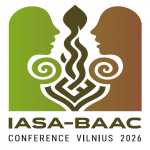Radio Broadcasting
In many countries where the radio medium is confined mainly to the dissemination of news and music, there will probably be no place for oral history in broadcasting. Where a broadcasting service exists whose output includes educational and cultural programmes of a fairly serious nature, then there is an application for oral history recordings in radio programming. There is a minimum technical standard which has to be achieved for this purpose, but the level is not unrealistically exacting for oral historians who have paid attention to basic recording skills (see Chapter 5).
Radio compilation is closely analogous to historical method. It involves research, selection and composition. These, being already acquired skills of the historian, do not require a great deal of adaptation in preparing radio broadcasts. Any themes selected with broadcasting in mind have to be fairly strong and bald if they are to be effective. The medium does not lend itself to the qualified or microsmic statements which historians are accustomed to make. Apart from anything else, the maximum length of radio programmes - usually forty five minutes - only permits the communication of historical generalisation. For this reason one anecdote may be more useful for broadcasting purposes than the most authoritatively refined but unillustrated comment.
While some of the characteristics of radio programming may fail to satisfy the historian, the medium offers its own interesting compensations. Perhaps the most outstanding of these is the satisfaction of publishing oral history in the form in which it is collected. This opportunity, more than any other application, does focus attention on the limitations of the transcript. It is clear that the conversion of the spoken word into a documentary form does have limitations. Attitudes, emotions, prejudices and personalities become flattened and are converted into a uni-dimensional approximation of what the informant tried to convey. The mosaic of information which the oral history recording represents, when used by the historian and the radio producer, makes radio programming an exciting application because it provides an opportunity to communicate those elements of oral history which cannot be put onto paper.
The main obstacle to achieving radio publication lies in the difficulty of persuading broadcasters to interest themselves in the oral history archive as a source of raw material. Several things militate against this. The time involved in listening, identifying potential themes, and selecting suitable material is perhaps the biggest handicap for producers who work to tight journalistic deadlines. Additionally, broadcasters usually prefer to do their own interviewing with a specific programme purpose in mind, than to edit material which others have collected for different reasons. It is likely, however, that broadcasting attitudes to oral history collections will change once the informants required for radio programmes are known only to 'survive' in an archival or library repository.
For so long as broadcasters do not naturally turn to oral history collections for programme purposes, a not inconsiderable effort is required on the part of the collecting centre to encourage this kind of use. Developed themes may have to be proposed and supported by suitable recordings before a potential radio programme will be taken up by a producer. Is the application worth this amount of effort? If the recordings are original and important then obviously they deserve as large an audience as can be reached. Secondly, broadcasting can provide a major and free source of publicity which will stimulate public use of the archive collection itself. Finally, initiatives in this field produce dividends in the longer term as broadcasters themselves become more familiar with oral history resources.1
- Radio feature programmes based entirely on IWM oral history recordings are:
Icarus with an oil can; compiled and presented by David Lance and produced by Michael Mason; BBC Radio 4; 1975.
The loneliest men; compiled and presented by Margaret Brooks and produced by Michael Mason; BBC Radio 4; 1976.


